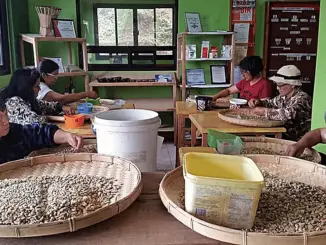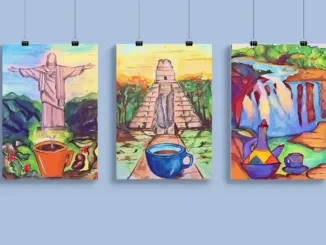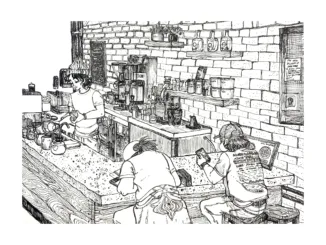
Held in Belo Horizonte in November, Brazil’s International Coffee Week 2024 addressed the effects of global warming on coffee production.
BY ISABELLE MANI
BARISTA MAGAZINE ONLINE
Photos courtesy of SIC
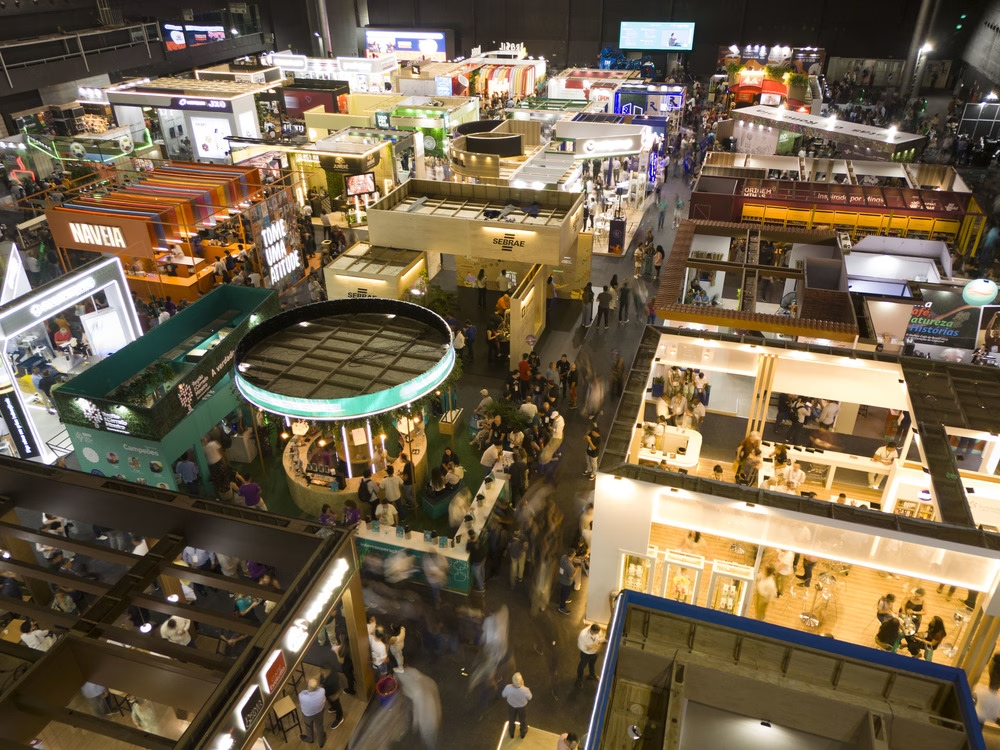
With 2025 in full swing, the ESG (Environmental, Social, and Governance) framework is continuing to take center stage in the coffee industry, with rising coffee prices and the EU Deforestation Regulation (EUDR) pushing the topic of sustainability to the forefront of everyone’s minds. Global warming, the issue at the heart of it all, took precedence at this past Brazil International Coffee Week, or Semana Internacional do Café (SIC), held in Belo Horizonte, Brazil, November 20-22. The main educational theme of the event, “The Effects of Climate Change on Coffee Production,” linked sustainability, technology, and social initiatives to the realities of coffee production today.
Walking through SIC’s 170 exhibitor stands, it was easy to see the influence of ESG everywhere. From the upcycled coffee byproducts to trendy ceramics collections and coffee-inspired socks, the topic of sustainability was present at every corner: not as an abstract concept, but as a practical part of how coffee is grown, traded, and consumed right now.
But what truly made SIC stand out from other coffee events was how the expo spotlighted every level of the coffee supply chain. This was reflected in the lineup of lectures, training programs, and giveaways, as well as in the exhibitor stands showcasing different brands and machinery. Exciting barista and roaster championships—shout out to Emerson Nascimento, the 2024 Barista Champion of Brazil—shared space with quality contests aiming to incentivize producers.
An origin-centric coffee expo like SIC reminds us that it’s not just about what the final consumer sees at the top of the pyramid at other coffee events: Here, a bio-powered irrigation system gets as much attention as a new Comandante hand grinder model—that’s the vibe that follows you around at SIC.
Below are my favorite things I learned and saw at SIC 2024.
Knowledge Empowers: Educational Sessions at the Expo
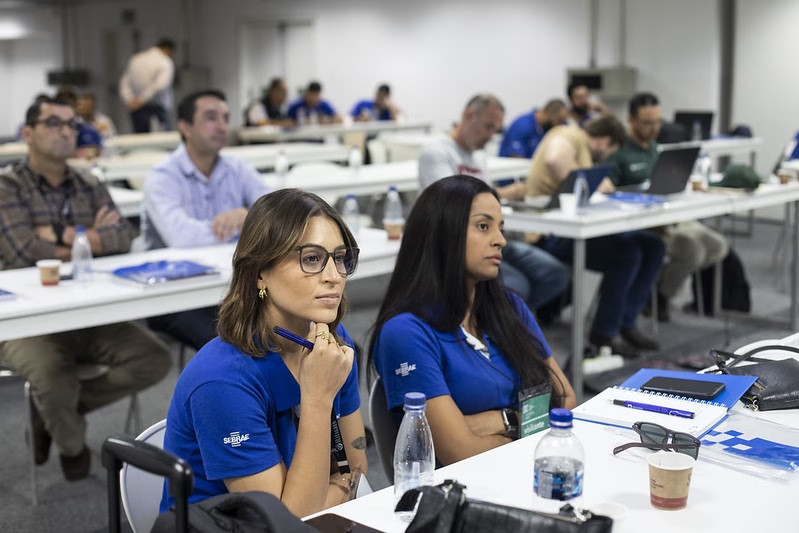
I’ve always loved the educational component of expo shows. For its 2024 event, SIC focused its educational sessions on practical solutions to pressing issues in the coffee industry, tying topics of quality, sustainability, and innovation to the future of coffee production.
Most speakers were scientists and researchers, covering topics like climate-resilient cultivars, terroir microbiomes, and bioeconomics. One standout session, “Climate Challenge: Its Impacts and Green Solutions for a New Sustainable Era,“ drew large crowds. The session highlighted the urgent need to adapt compliance regulations to tropical climates, which are home to most of the coffee belt.
Workshops also addressed the social side of sustainability, offering practical skill-building for baristas, machinery technicians, and others. They promoted job creation and explored forms of income diversification for growers, such as carbon credits and coffee byproducts.
“The lectures are key for connecting research to the coffee supply chain and sparking important conversations,“ says Dr. Gerson Silva Giomo, a senior specialty-coffee quality researcher at the Agronomic Institute of Campinas, or Instituto Agronômico de Campinas (IAC).
My favorite program at the expo was the Faemg Young Marathon 2024, which awarded its championship team after months of training rural youth to develop technical and social projects that would benefit their communities.
Passion Shared Across Brazil

The ”Brasil” booth was truly the heartbeat of the expo, serving as a dynamic hub for the “Brazil. The Coffee Nation” program—a collaborative effort by ApexBrasil and the Brazil Specialty Coffee Association (BSCA). Strategically located near the BSCA-organized Barista Championship stage, the booth was buzzing with cheers from onlookers and an energetic vibe led by the emcees.
Highlights included a workshop on water quality for coffee, interactive sensory activities, and brewing sessions led by guest hosts such as Dionatan Almeida, the 2024 World Cup Tasters Champion.
The BSCA is dedicated to supporting coffee producers, particularly small-scale farmers who make up most of the country’s coffee growers. Aligned with this year’s SIC theme, international specialty-coffee traders invited by the “Brazil. The Coffee Nation” program participated in cuppings designed to highlight social sustainability. Gender equality initiatives featured coffees produced exclusively by women, while tables presented coffees from small-scale family farms aimed at opening direct-trade channels. Another highlight was a cupping round championing coffee produced in the forests of the Amazon by indigenous communities, recently recognized as a Geographic Indication for Denomination of Origin under the name ”Robustas Amazônicos.”
Carbon Matters
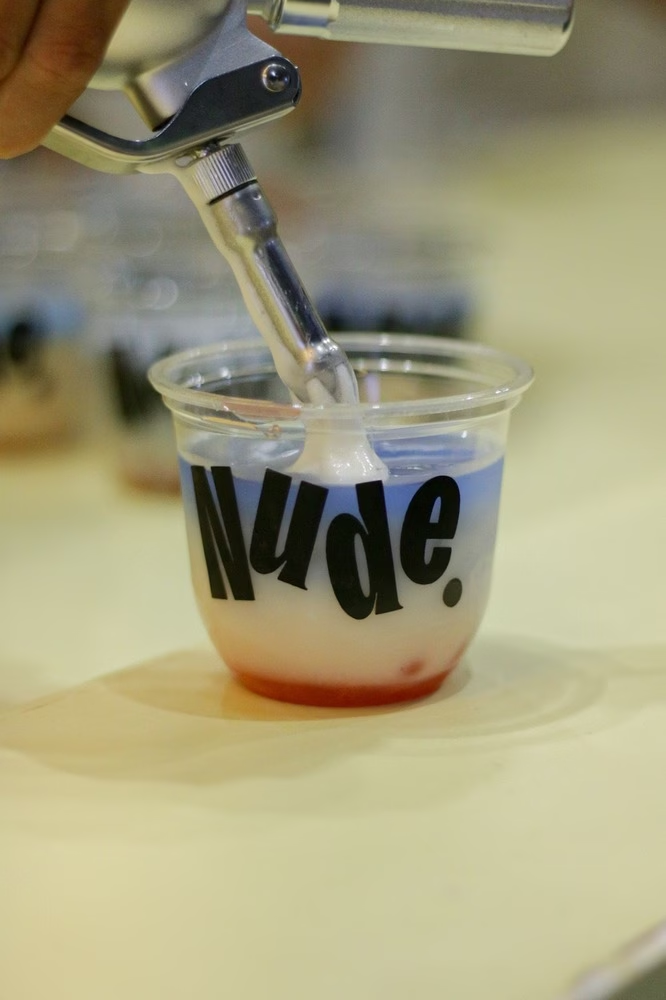
At the event, over 25,000 attendees explored a wide range of sustainability-related products and tech, like biofertilizers, AI data collection for green coffee quality grading, and recycled pottery. Below are my favorite types of sustainable products in two categories: Production and Consumption.
On the production side, NetZero takes a collaborative approach to sustainability: They trade biochar for organic waste like husks and branches, helping farmers save on input costs. Biochar is basically a type of charcoal made by heating organic material with little to no oxygen. It traps carbon dioxide from the atmosphere and, when added to soil, helps it hold water better, keeps nutrients in place, and improves overall health. Trading biochar for organic waste is a win-win for NetZero and Brazilian coffee farmers, resulting in less waste, healthier soil, and the chance for growers to earn carbon credits through long-term carbon sequestration.
On the consumption side, Nude, an oat milk company with a strong presence in Brazilian specialty-coffee shops, drew the longest lines at the event with its pop-up café. Their menu featured creative coffee and ice cream-based drinks, such as Balsamic & Berry and Blue Talchá, with 2021 World Barista Champion Diego Campos Guzmán leading the service.
Founded in 2020, Nude is Latin America’s first food-tech company. It sources organic oats from small producers and ensures that every supply chain step, from cultivation to consumer delivery, is monitored for carbon emissions. “From packaging materials to transportation fuel, (every aspect of our) footprint is accounted for,“ says Tally Singal, the company’s marketing director. “Our goal is to empower consumers to make informed decisions while encouraging a shift towards a low-carbon economy.”
Women in the History of Coffee
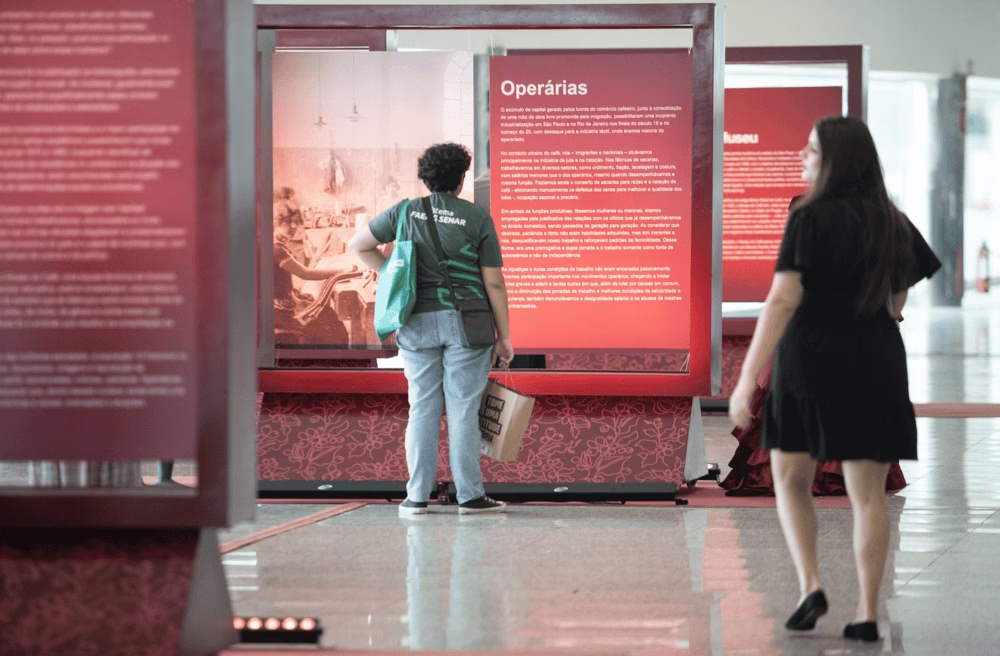
The exhibition “The Presence of Women in the History of Coffee,” curated by Brazil’s Museo de Café (Museum of Coffee), was a beautiful and moving exploration of the often-overlooked role of women in the coffee industry. Displayed throughout the expo building’s long entrance corridor, the exhibition shone a light on the women who have been integral to the coffee trade from its colonial origins to the present day.
The exhibition shows how the history of coffee in Brazil is rooted in women’s work: the work of immigrant colonas, enslaved African women, and seamstresses packing beans in port cities. Brazil’s coffee boom in the late 19th and early 20th centuries, driven by these women, transformed the industry, replacing sugarcane on a massive scale while propelling the mixing of cultures throughout the country.
After the abolition of slavery in 1888, more colonas arrived from Italy, Japan, Spain, and Germany to work on coffee plantations in Brazil. Despite precarious conditions, these immigrant families laid the foundation for many of today’s coffee producers. Today, around 80% of coffee farms in Brazil are run by small family producers, many of them third-generation descendants of these women.
Coffee Reads
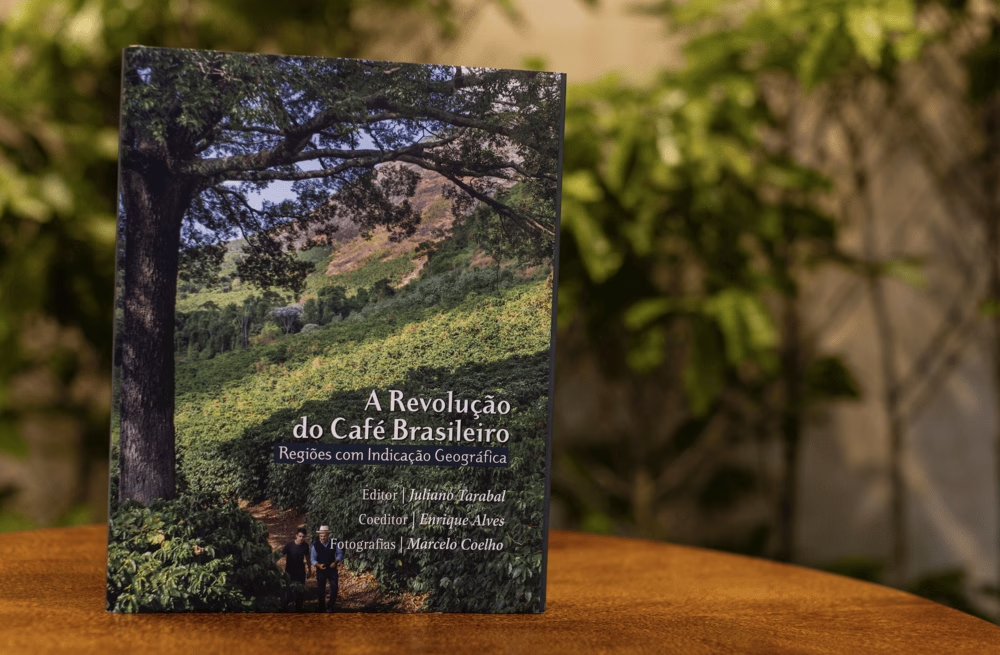
The release of the book “The Brazilian Coffee Revolution: The Coffee Farming Regions with Geographical Denomination of Origin“ was definitely a standout at SIC. It’s the first book of its kind to dive into the history and unique cultural traits of Brazil’s 14 geographical indications (GIs).
Edited by Juliano Tarabal, an arabica expert and director of the Cerrado Mineiro Federation of Growers, and Dr. Enrique Alves, a canephora specialist researcher working with Amazonian-grown coffees, the book is packed with stunning images by Marcelo Coelho. Through storytelling, it highlights the things that unite Brazil as a whole while celebrating what makes each of the country’s coffee-producing regions unique. With five biomes and an array of completely different terroirs, the spirit of cooperation over competition between regions really stands out throughout the book. The book is bilingual, and I’m a sucker for anything breaking down walls in the science world to make information more accessible—and this book totally nails that.
That’s all we have for SIC 2024! We’re looking forward to the 2025 event.
ABOUT THE AUTHOR
Isabelle Mani (she/her) is a writer, journalist, and communicator specializing in the international coffee industry. Since 2017, she has focused on writing articles and features for various international coffee news outlets. Isabelle has traveled to coffee-producing countries such as Colombia, Kenya, Rwanda, China, and Brazil to study and research coffee. She holds training certifications from the Specialty Coffee Association (SCA) and the Coffee Quality Institute (Arabica Q Grading).
Subscribe and More!
Out now: It’s the June + July 2024 issue of Barista Magazine! Read it for free with our digital edition. And for more than three years’ worth of issues, visit our digital edition archives here.
You can order a hard copy of the magazine through our online store here, or start a subscription for one year or two.




